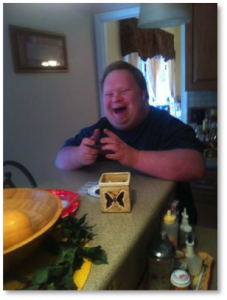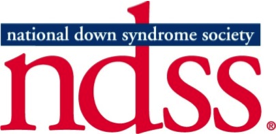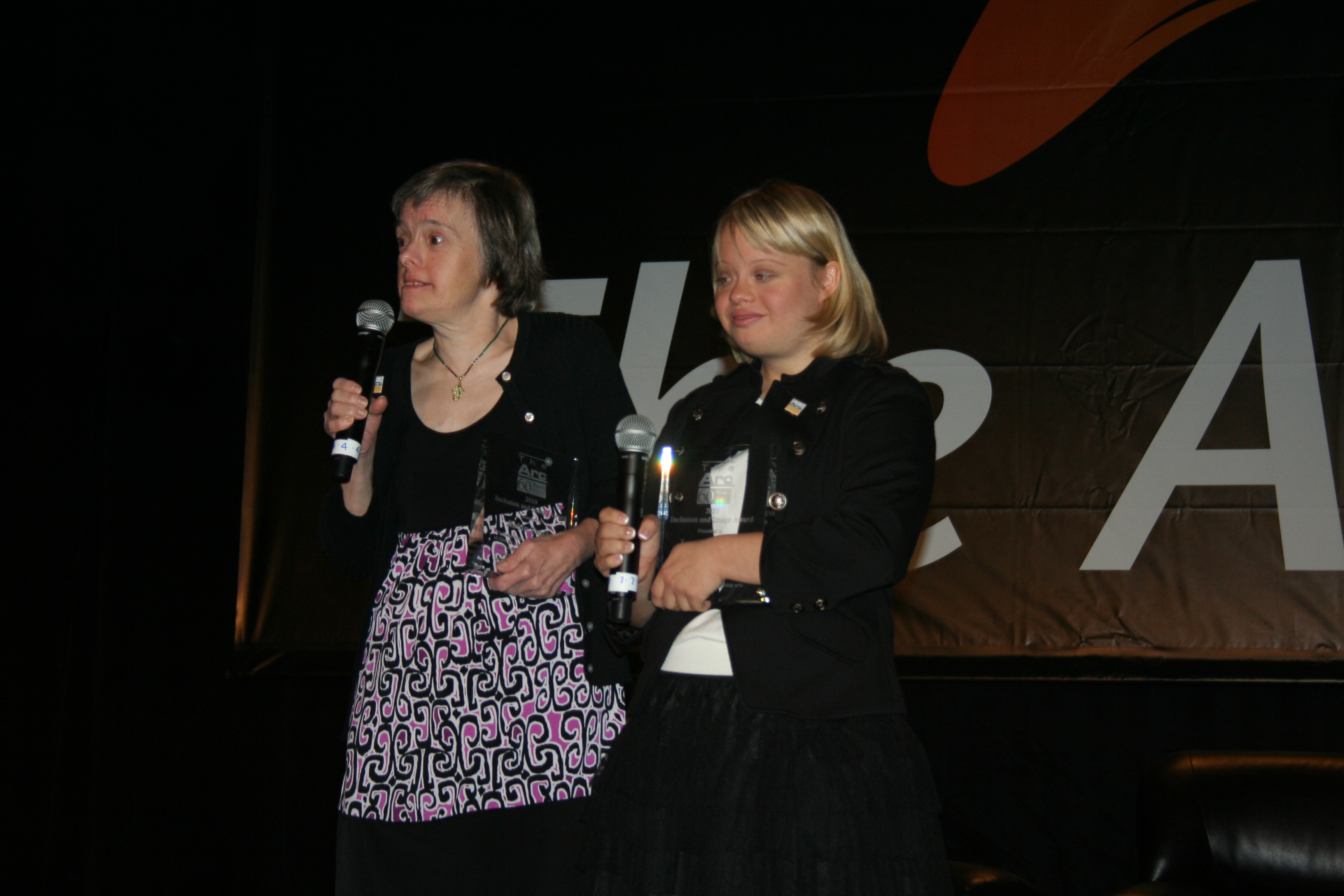Update: Since this blog post was written, the DJ made an on-air apology and announced that his station will be working with local developmental disabilities organizations on an awareness campaign.
By Alex Standiford
Hello, my name is Alex, and I have an older sister, named Kellie. Kellie is 30 years old, and can easily be described as the most loving, caring, and wonderful person I have ever met. She sees the world very differently than most of us– without cynicism and with complete and utter hope. To Kellie, each and every person is good, unless proven otherwise. Anyone who visits her, no matter how frequently, is always greeted with a “Hi!,” an endless, gut wrenching hug, and a sincere declaration of love. My sister is truly a beautiful person in both body and spirit whose outlook on life I can only hope to someday attain. In many ways, I look up to her. My sister passionately loves music and dancing and growing up I remember countless times that I would open her bedroom door to find her dancing and singing at the top of her lungs in front of the mirror.
You may wonder what makes Kellie so special, what makes her story different from any other big sister you or someone you know may have? Well, Kellie happens to have Down syndrome. If you know anything about Down syndrome you know that it is something that unique people, like my sister Kellie, are born with and will live with for their entire lives. Kellie, despite some hardships and challenges she has faced, has always persevered and been positive, friendly, and happy just being who she is.
On Monday, January 21st, my sister was faced with yet another instance of feeling like she was different, or that the fact that she had Down syndrome made her somehow less than other people. On the 21st she accidentally phoned in to Mo’s Radio Show on the Q92 Radio Station based out of Alliance, Ohio, where her manner of speaking was rudely scrutinized and unapologetically berated by both Mo and countless individuals who were “tuned in” at the time. Mo opportunistically exploited my sister’s imperfect speech through his radio show and made her an object of amusement for all of his listeners– including people that knew Kellie.
“No, say it real slowly. I want to try to figure this out. It’s a little game.”
Anyone would have been embarrassed to be both accidentally aired on the radio and ridiculed for something which one has no control over. What Mo and countless listeners did not consider is what this experience felt like for Kellie. Kellie is self-conscious about her Down syndrome and has expressed her insecurity throughout her life. Sometimes, she will ask, “Why do I look different?,” and other times, “Why do I talk funny?” When it comes with dealing with tough social situations, such as speaking with an unknown person when she accidentally dials the wrong number, she will fumble over her words out of general embarrassment that all people feel in such instances. Most of the time, people will understand, at least to some small degree, and will deal with the situation with as much compassion and tact as possible.
When it comes to dealing with difficult emotional situations, Kellie processes her feelings very outwardly. Everyone has an emotional range, and Kellie has the capacity to become so hurt that she will cry for days. Being the epitome of an optimist Kellie trusts and assumes that everyone is trustworthy and kind. When someone breaks that trust, it hurts her in a way that is far deeper and more powerful than I could ever understand. I imagine it feels like the most intense betrayal or the greatest heart break I could ever experience. It is earth-shattering.
Knowing this, now considering the reality of what happened that January afternoon, try to understand the emotional pain, heartbreak, and confusion that my sister had to feel for the sake of public entertainment. Undoubtedly Mo and the radio studio will continue to hold on to the argument that “the ‘host’ wouldn’t have aired the call had he known the situation in advance,“ that Mo “would NEVER do this with any sense of malice,” but what other sense could there have been in this situation? Mo himself stated, “You don’t know who Mo is? Okay, so I can laugh at you and you won’t know who to call and say you‘re offended. (laughs) Very good.” It was quite clear that Mo knew what he was saying and doing was offensive and inappropriate, but that did not stop him.
“You don’t know who Mo is?”
“No.”
“Okay, so I can laugh at you and you won’t know who to call and say you‘re offended. (laughs) Very good.”
Whether or not the call was made from an individual with Down Syndrome, an individual with a speech impediment, or some foolish prankster looking for attention, the direction and focus of the aired conversations were centered on something that is hurtful and demeaning to numerous people. Essentially, it was entirely ignorant to air the call into live radio at all. The situation would have never escalated had the “host” simply said to Kellie, “I’m sorry, I can’t understand what you’re saying,” or “This is Q92, I think you have the wrong number.” Whether intentional or not, this experience was real and it caused a great deal of hurt to many people, not the least of all to Kellie and it should have never turned out this way.
Luckily for Kellie, she has a strong, supportive family to help her through this time. What I don’t want to see happen is Mo or another jockey like him believe it is appropriate when “somebody calls my show with a little speech impediment– I have a little fun.” The next child or adult to become the focus of this cruel bullying may not be as lucky as Kellie. It could easily be someone who is defenseless to the act, someone who has no one to stand up for them—a child aired mistakenly on the radio who becomes an object of mockery and bullying at school or an adult with a developmental disability who lives alone in a group home. It is never appropriate to make someone who is different from you a bull’s eye on the target of your “humor”. We try to teach our children tolerance and love, but then what hope can we have for them to adopt this mentality when they can hear and see the adults around them blatantly ignoring the lessons they teach.
View the complete radio transcript or view Kelie’s Story on Facebook.




 Fans of the hit Fox TV show Glee were given an emotional episode last night as Jane Lynch’s character, Sue Sylvester, dealt with the shocking death of her sister Jean, played by Robin Trocki.
Fans of the hit Fox TV show Glee were given an emotional episode last night as Jane Lynch’s character, Sue Sylvester, dealt with the shocking death of her sister Jean, played by Robin Trocki. 





